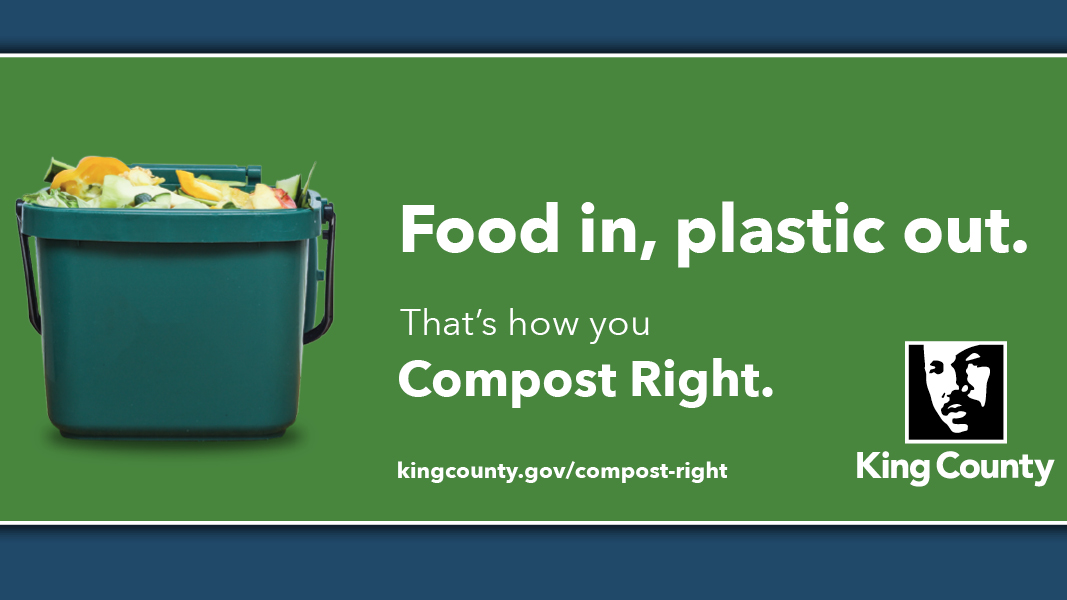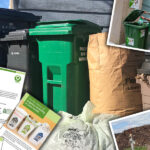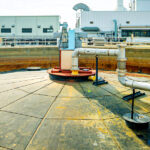A King County (WA) Solid Waste Division task force — which includes representatives from the City of Seattle, suburban cities, haulers, composters and others — has been working on “Compost Right” messaging to get plastics and other contaminants out of organics recycling collection bins. Karen Dawson of Cedar Grove Composting, a member of the task force, sent BioCycle links to the resources and assets created for the Compost Right campaign. “Clearly the tools are regional, but other localities can customize the messaging for their own use,” notes Dawson.
One graphic, “What To Do With Food Containers,” has these instructions:
- Scrape food out of containers and packaging and into the compost bin
- Containers must be clean and dry before going in the recycling bin
- Clean and dry plastic bags can only be recycled if you take them to a takeback location external link (e.g., grocery store). Otherwise put them in the garbage.
- If you can’t empty and clean a container, then the whole thing goes in the garbage to avoid contaminating the compost and recycling bins.
 The Compost Right website page also has “When In Doubt” information that includes a Dropdown menu with links to all the jurisdictions in King County that offer organics collection: “When in doubt, find out so you only compost what is accepted by [your] compost collection company. Check your local compost guidelines to ensure you’re putting the right materials in your compost bin. If you’re still unsure if something can be composted, put it in the garbage to avoid contamination. You can learn more about composting in your area by checking with your city, or find your garbage, recycling and compost collection company by using the following drop-down.”
The Compost Right website page also has “When In Doubt” information that includes a Dropdown menu with links to all the jurisdictions in King County that offer organics collection: “When in doubt, find out so you only compost what is accepted by [your] compost collection company. Check your local compost guidelines to ensure you’re putting the right materials in your compost bin. If you’re still unsure if something can be composted, put it in the garbage to avoid contamination. You can learn more about composting in your area by checking with your city, or find your garbage, recycling and compost collection company by using the following drop-down.”
The link to the messaging assets includes customizable graphics. These can be adopted by any organics recycling program, including foodservice establishments and households.










